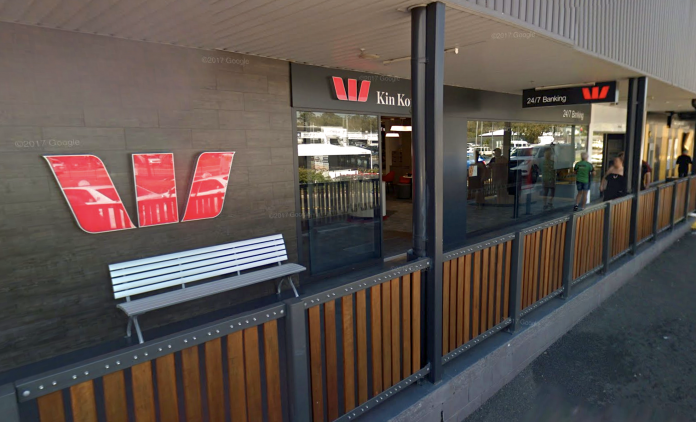Each year major Australian businesses write to Canberra telling them how much carbon emissions they have cut in the past year. For some big businesses it has become an opportunity to virtue signal.
Take Westpac, “Our approach to Net Zero Carbon is an ongoing journey as we continue to adopt innovative ways to measure and reduce our carbon footprint.” When you get to the detail, however, Westpac hide that one of the major ways they have reduced carbon emissions is through the jargon phrase of “property consolidation”.
What does “property consolidation” mean? Westpac is, in effect, claiming a carbon credit for shutting down bank branches across Australia, even though they’re causing increases in emissions from people having to drive hours to go to a bank. Westpac’s actions do nothing to change the temperature of the globe but their shutting of branches have real, negative impacts on older Australians, small businesses and indigenous Australians.
Westpac had announced just months ago that it was going to shut four branches across regional Queensland, in Warwick, Cloncurry, Ingham and Tully. Senator Gerard Rennick raised concerns with me late last year about this. In the new year, he and I worked to get a Senate inquiry on the issue.
The first act of the Committee was to write to all the banks asking them to pause any future closures while the Committee gave local communities the chance to have their say. The Commonwealth Bank immediately agreed. Westpac originally dragged their heels but after the Committee asked them to appear at Senate hearings in Sale (in regional Victoria) and Cloncurry they had a change of heart.
The pressure from the Committee has so far saved 10 country bank branches, including the above 4 in Queensland. It seems that the one thing bank executives are most scared of is visiting a country town and meeting country people.
Prior to the summons from the Senate committee, the bank executives who had made the decisions to shut branches had not even visited these towns. That is at least one thing that must change.
Last year, the banks agreed with the Government that they would prepare a community impact statement before shutting future branches. Some banks have started to prepare these but they do not include any actual discussions or consultation with local communities.
Our major banks have a privileged place within our financial architecture. Their deposits are granted government guarantees. They have a moral duty to help provide financial services to as many people as possible. The least they could do is to visit, or at least pick up the phone and call, the country towns they make money from.
In fairness, the banks are not charities. They need to make a profit. There will be some small and remote parts of Australia that will never be able to support commercial banking activities. But then there is perhaps a role for the government to help through our Australia Post network, or other means, to provide access. Perhaps the banks could pay for an expansion of this through the bank levy that is applied to our major four banks.
We have a universal service obligation for telecommunications perhaps we need one for banking services too.
In recent years the banks have tried to convince us that they do have a moral conscience. All of the major banks have committed to so-called “Environmental, Social and Governance” standards which are basically just big words to help our self-appointed betters to tell us how wonderful they are.
In ANZ’s ESG statement to shareholders there is lots about climate change, LGB+ rights, indigenous issues and women’s rights. There is not a single mention of remote communities or regional areas. Nor is there a mention of farming.
People who live in a small town have some of the hardest lives among us. They have access to fewer services, their internet probably won’t be good enough to watch Netflix and they even die younger. Yet, they are ignored in the moral vanity project of the banks. If the banks do not change this, we need better laws to force it.
Taking the Senate to these towns has helped a bit but there is much more to do.








